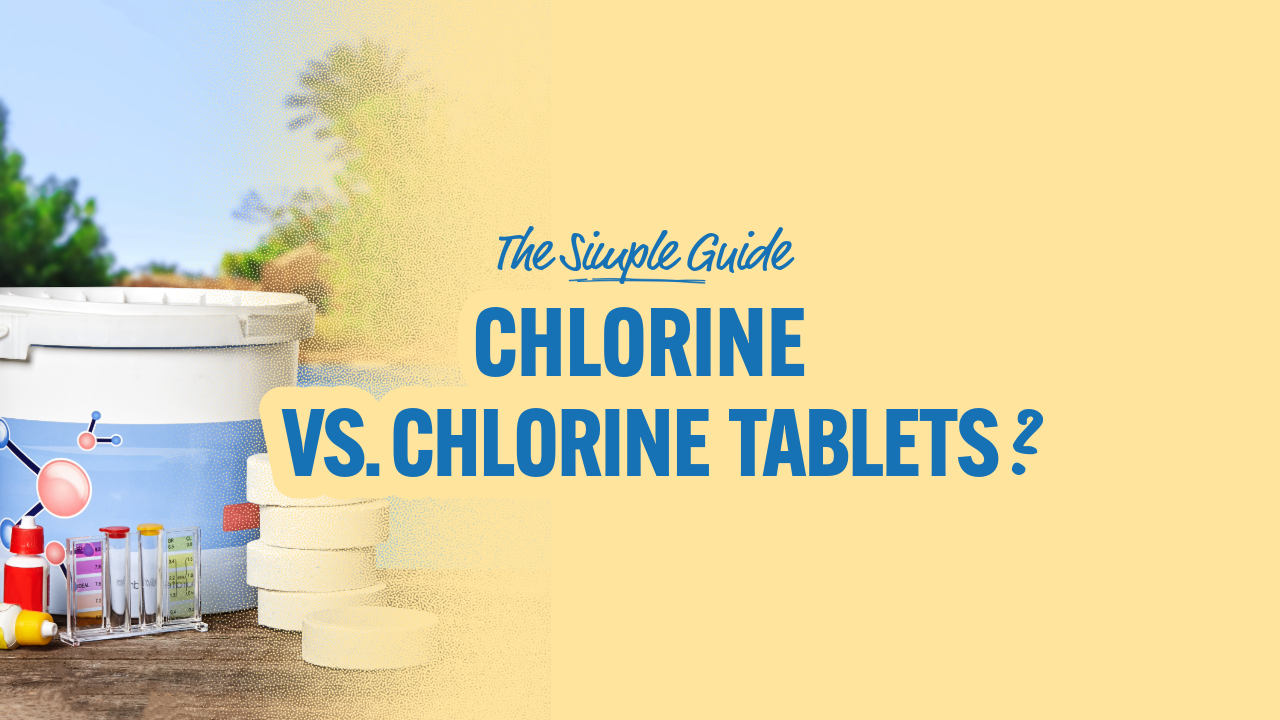When it comes to keeping your pool water safe and clear, chlorine is essential. But here’s where things can get conflicting: liquid chlorine and chlorine tablets both are chlorine, so why can’t you just pick one and run with it?
The easy answer? They’re made for different jobs, and using them the wrong way can throw your water balance off fast.
Let’s start with the basics:
Liquid Chlorine
Liquid chlorine is your pool’s main defense system. It works quickly to sanitize the water, killing off bacteria, algae, and other unwanted contaminants.
- Fast-acting and effective at killing bacteria and algae
- Ideal for regular chlorination and weekly shocking
Chlorine Tablets (Trichlor)
Chlorine tablets (usually trichlor) dissolve slowly over time. They’re convenient, consistent, and easy to use in floaters or automatic feeders.
- Slow-dissolving and convenient for maintenance
- Easy to use in floaters or automatic feeders
So, can tablets replace chlorine?
Not exactly. Tablets release chlorine slowly and are not strong enough to handle heavy use, algae blooms, or weekly shocking.
Relying on tablets alone can also lead to high cyanuric acid levels, which reduces chlorine’s effectiveness over time. Find out more about that (here).
With this in mind:
Liquid chlorine should be used weekly as your primary sanitizer. Tablets can be a helpful supplement, but not a substitute. This combination keeps your water clear, safe, and balanced without overloading it with stabilizer.
Not sure where your levels are? Check out our reliable test kits to find out exactly what’s going on with your pool water, without the guesswork.

